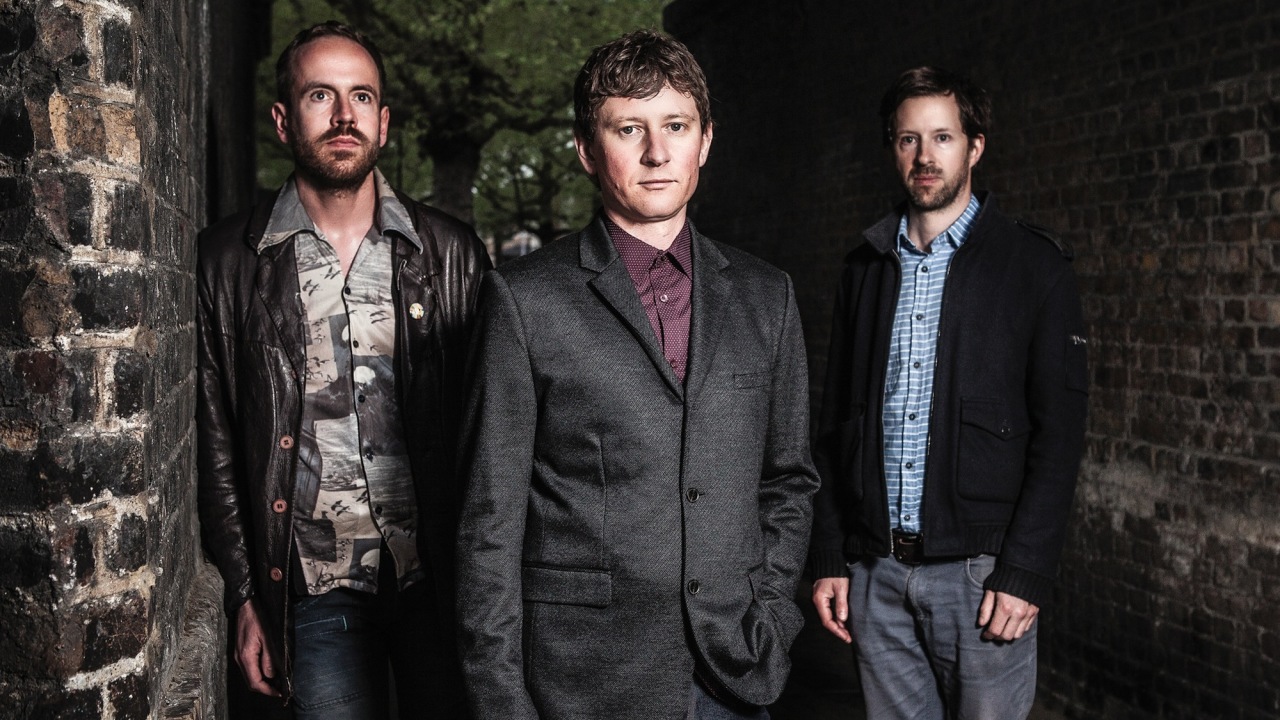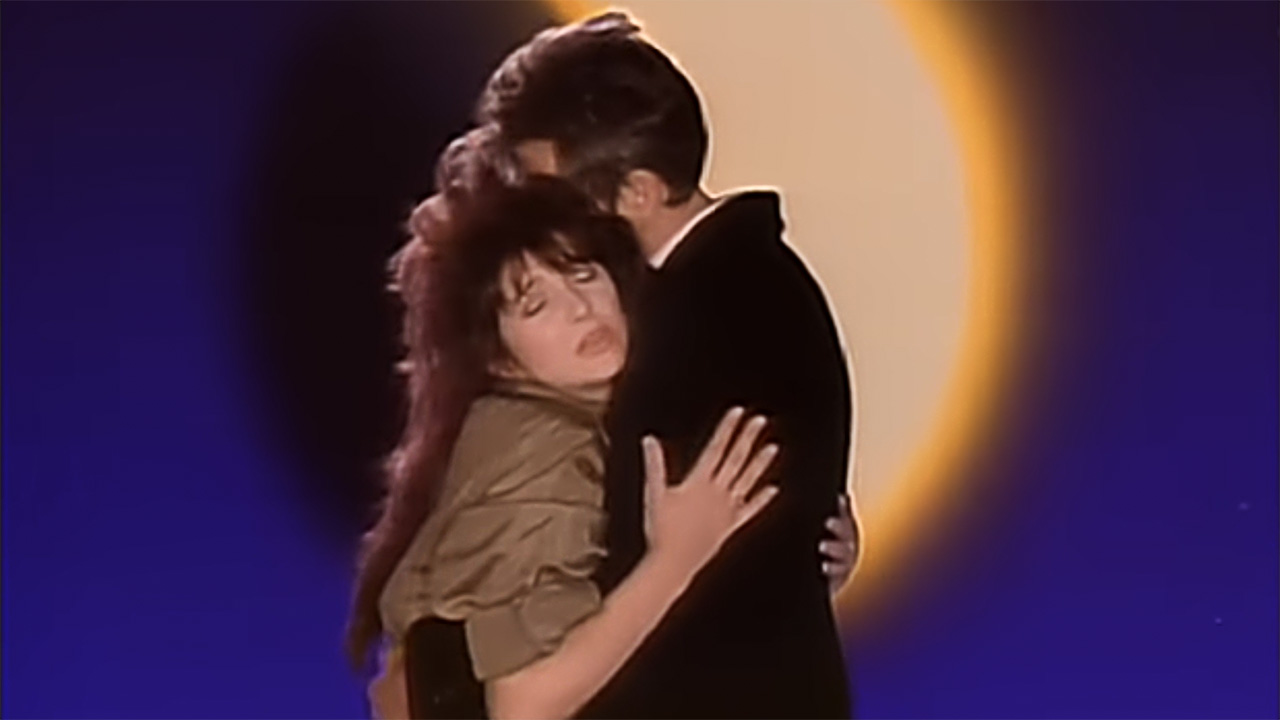Gazing At The Stars
Engineers have spent the last decade honing their atmospheric prog rock, and now their blissful yet melancholy new album Always Returning looks set to take them to new heights.

Select the newsletters you’d like to receive. Then, add your email to sign up.
You are now subscribed
Your newsletter sign-up was successful
Want to add more newsletters?

Every Friday
Louder
Louder’s weekly newsletter is jam-packed with the team’s personal highlights from the last seven days, including features, breaking news, reviews and tons of juicy exclusives from the world of alternative music.

Every Friday
Classic Rock
The Classic Rock newsletter is an essential read for the discerning rock fan. Every week we bring you the news, reviews and the very best features and interviews from our extensive archive. Written by rock fans for rock fans.

Every Friday
Metal Hammer
For the last four decades Metal Hammer has been the world’s greatest metal magazine. Created by metalheads for metalheads, ‘Hammer takes you behind the scenes, closer to the action, and nearer to the bands that you love the most.

Every Friday
Prog
The Prog newsletter brings you the very best of Prog Magazine and our website, every Friday. We'll deliver you the very latest news from the Prog universe, informative features and archive material from Prog’s impressive vault.
"It’s really important to keep a sense of mystery.
“Musicians these days are expected to offer up every last morsel of information. And because of the weight of competition, you run the risk of not getting noticed if you don’t offer something super-juicy. But you make music to communicate ideas or how you feel. And that should be enough. Why should you bow down to this banal Twitter culture that we’re a part of?”
Mark Peters isn’t having a rant. But the growth of social media and its appetite for data is something that bothers him – especially when it comes to being creative, an endeavour that deserves to be allowed a certain degree of mystique.
As the guiding force behind Engineers, the band he co-founded 11 years ago, Peters has quietly cultivated an engrossing body of recorded work that invites the listener in, without feeling the need to explain what it’s all about. Engineers’ four albums to date are heavy on atmosphere yet light of touch, bubbling away on ethereal waves of sound that blend electronica, prog and acoustic reverb into a new kind of sensory bliss. Factor in open-ended lyrics that seem to waft in from a half-remembered dream and the effect is complete.
Latest effort Always Returning is their most realised yet, guided by a fascination with warm melodies and the textural possibilities of ambient sound. “The things that interest me have that slight complexity of classical music,” explains Peters, talking to Prog from his base in York. “Mainly because I like stuff that old grannies are probably into, like Debussy or Vaughan Williams. Somebody once compared The Beach Boys to Carl Orff and they were right. If you listen to the mellower bits on Carmina Burana, you can hear where the harmonies are. Me and Ulrich have learned that we’re driven to make music when we can put those little inversions in, those little tricks that make it interesting for us.”
The Ulrich in question is Ulrich Schnauss, the German electro buff who helped spearhead the early 00s nu gaze scene. His association with Peters began on Engineers’ last album, 2010’s In Praise Of More, though Always Returned marks his debut as a full-time band member. Since first meeting at a showcase night for the Sonic Cathedral label, the pair haven’t hung about. Aside from Engineers, they’ve also released a couple of instrumental albums together – Underrated Silence and Tomorrow Is Another Day – which suggests their appreciation of each other is reciprocal.
“Even before I met him,” Peters recalls, “Ulrich was having an influence on my writing style. When we got to know each other, we both realised that we have similar tastes when it comes to writing, particularly in the chord structures that we use.”
Sign up below to get the latest from Prog, plus exclusive special offers, direct to your inbox!
Schnauss agrees: “I think Mark was given a copy of my second album, A Strangely Isolated Place [2003], by a friend. And I was given the first Engineers single [Home]. It was definitely a mutual appreciation thing right from the start. We share a passion for chord changes that have a hopeful but also melancholic, escapist quality to them. We’ve both moved on from that shoegaze/nu gaze scene and we’re listening to different music these days. But that very essential, emotional understanding of music that we share still remains.”
Engineers’ journey hasn’t always been easy. Formed in 2003 by multi-instrumentalist Peters and London-based cohorts Simon Phipps (guitar/vocals), Dan MacBean (bass/guitar) and drummer Andrew Sweeney, they were initially compared to Slowdive and other shoegazing bands of the time. The comparisons made sense up to a point, especially given Phipps’ ethereal voice, though Peters says that he’d only heard “one or maybe two Slowdive tracks. I was actually into My Bloody Valentine around that time.”
Their first single, Home, drew plenty of praise in the music press. It was joined by a mini-album (2004’s Folly) and, a year later, their self-titled debut album. One of its standout tracks, Forgiveness, even ducked into the UK Top 50. But Peters admits that they fell into the trap of trying to compromise when it came to recording a follow-up. It would be another four years before the release of Three Fact Fader, by which time the band were in crisis.
“We played the game of trying to please industry people,” he says. “And thus it stalled the album so much that it didn’t actually come out. It wasn’t the greatest time doing Three Fact Fader. We were doing multiple versions of the songs that were mooted for singles and it took us so long. So by the time we’d finished and the money had run out, everyone went off and did their own thing. It ended too soon really. But then DJ Sasha did a remix of one of the tracks [Sometimes I Realise], which prompted more people to show some interest. It was only once the dust had settled that I started to write again.”
By the time Engineers found a home for the album with Kscope, MacBean and Sweeney were gone. Their replacements, bassist/singer Daniel Land and drummer Matthew Linley, were in for In Praise Of More, though both Phipps and Land have since left. The one constant through all this, as chief songwriter, has been Peters.
As befits their low-key sensibility, Engineers are one of those bands you might have heard without knowing it. Aside from DJ Sasha, they’ve prompted remixes by Mogwai and North Atlantic Oscillation. Viewers of Top Gear, Gavin & Stacey and Neighbours – oh yes – will already be familiar with their music, subconsciously at least. Meanwhile, Home was used as the theme for two series of popular HBO drama Big Love.
Peters concedes that they’re probably one of the less obvious prog bands on Kscope, home to Steven Wilson, Anathema, Nosound, Ulver and the rest. That said, there’s no denying Engineers’ credentials in that department. “I’m not one for 30-minute epics,” he explains, “but I really like Tangerine Dream and acoustic tracks by King Crimson, for instance. I used to listen to Yes as a teenager because some of it goes into that classical realm I mentioned earlier.
“Television are a great example of what prog music could and should be about. All too often, prog is a little too self-congratulatory, especially when it’s overwrought and has that cinematic aspect to it. Whereas something like Television is very economical.”
Schnauss is similarly inclined: “Pink Floyd’s Wish You Were Here was the first record I ever owned, and I went through periods where I listened to a lot of Yes or 70s jazz fusion. But my biggest influence is Tangerine Dream. For a long time, prog rock was almost like a negative or derogatory term, but I never agreed with that. A lot of journalists have a tendency to be quite cynical about music and are just looking for something that’s cool. And Tangerine Dream and Edgar Froese never tried to be cool – they were just interested in expressing very strong human emotions through the means of electronic music. They occupy a unique position because of that.”
There are elements of both Floyd and Tangerine Dream in Always Returning, though the album also carries the imprint of 70s kosmische and the gentler dynamics of 80s misfits Felt.
Part of Engineers’ allure is Peters’ habit of coating a dark theme in a light gloss, smuggling unsettling tales into song via cosy melodies. It’s a trick he pulls off time and again on Always Returning, his visions given shape by Schnauss’ emotive keyboard runs.
“I like music that has an almost bucolic aspect,” says Peters, “but that also has this grave feeling underneath. A song like It Rings So True, for example, has a feeling that life sucks and it’s fucking awful, but you can just get over it. The idea is that you can overcome that depression.
“Over the past ten years I feel I’ve got better at translating what’s happening in my head to what comes out of my mouth, with a bit less bullshit. I always used to worry about everything having to make sense, whereas now I don’t care. I approach songwriting in a stream-of-consciousness way, where I try to trust the first thing I do.”
For Schnauss, the band acts as a freeing diversion from his solo work. “What I like about Engineers is that I can take a step back,” he declares. “I can just focus on stuff that I enjoy doing, which is essentially writing keyboard parts. Mark writes in a way that I can instantly relate to, emotionally. It’s a very nice privilege to have and is very liberating. It’s like picking cherries from a cake.”
Always Returning is out on August 11 via Kscope. See www.facebook.com/engineersband for more information.
Freelance writer for Classic Rock since 2008, and sister title Prog since its inception in 2009. Regular contributor to Uncut magazine for over 20 years. Other clients include Word magazine, Record Collector, The Guardian, Sunday Times, The Telegraph and When Saturday Comes. Alongside Marc Riley, co-presenter of long-running A-Z Of David Bowie podcast. Also appears twice a week on Riley’s BBC6 radio show, rifling through old copies of the NME and Melody Maker in the Parallel Universe slot. Designed Aston Villa’s kit during a previous life as a sportswear designer. Geezer Butler told him he loved the all-black away strip.

